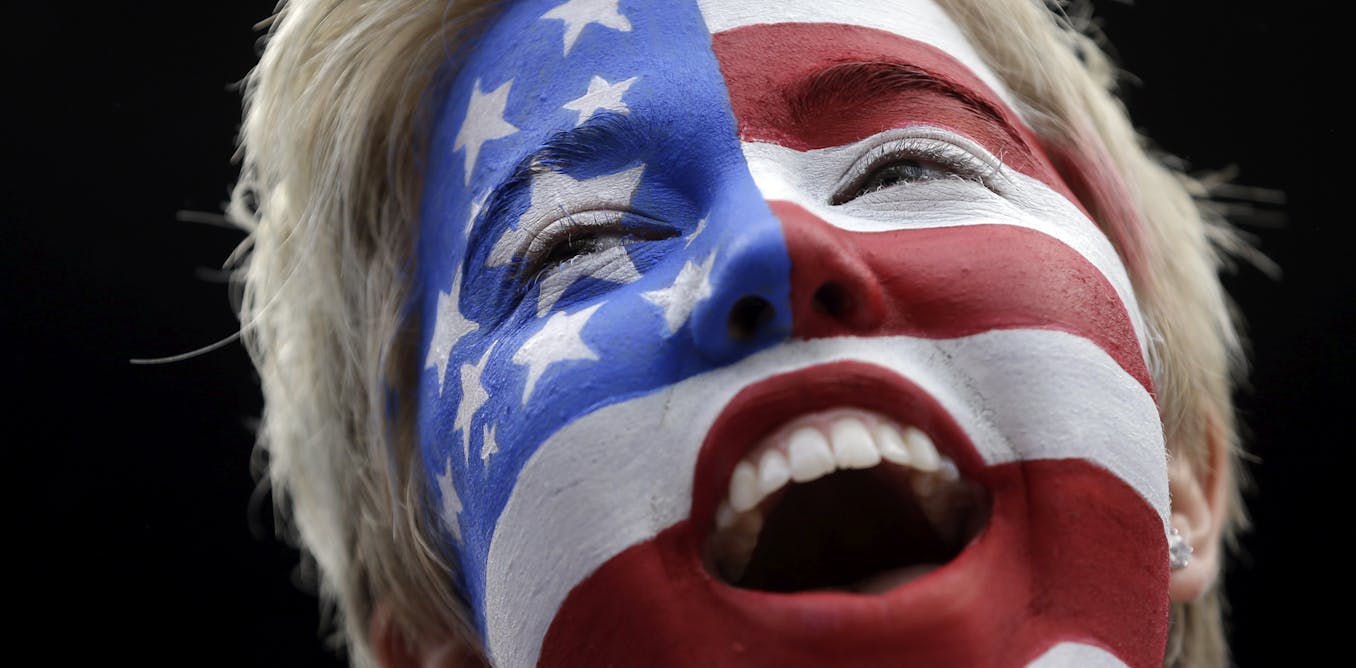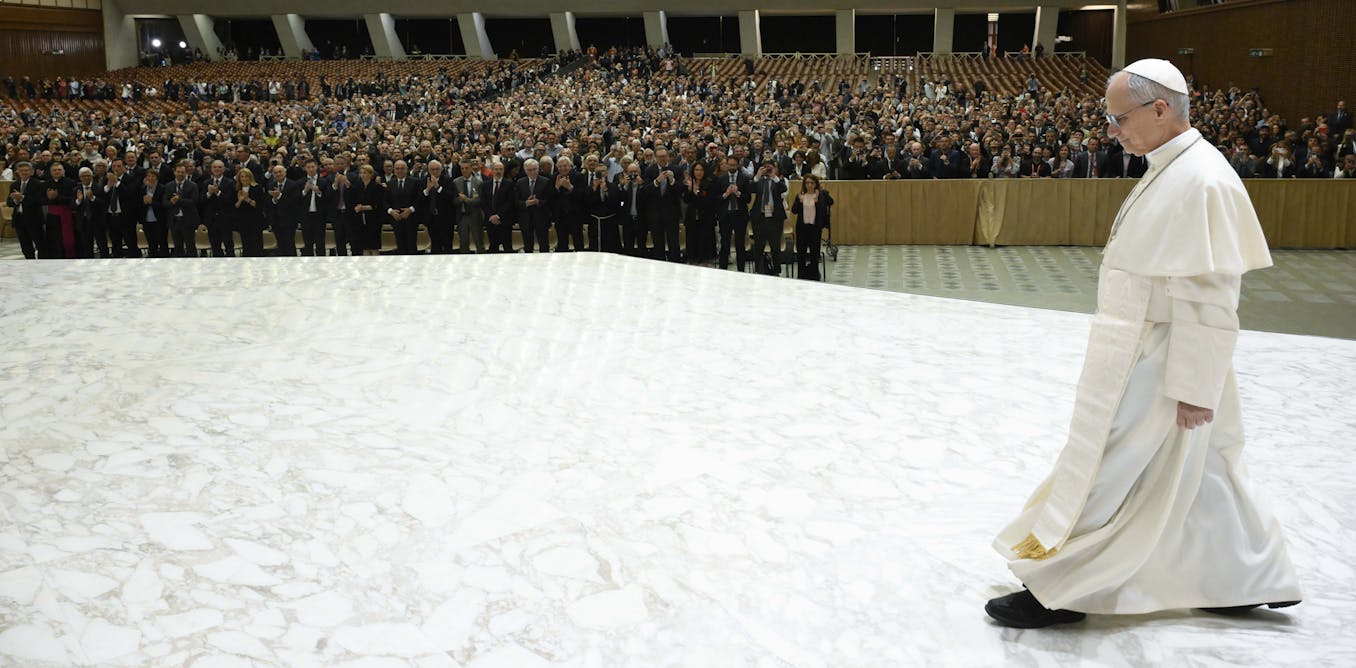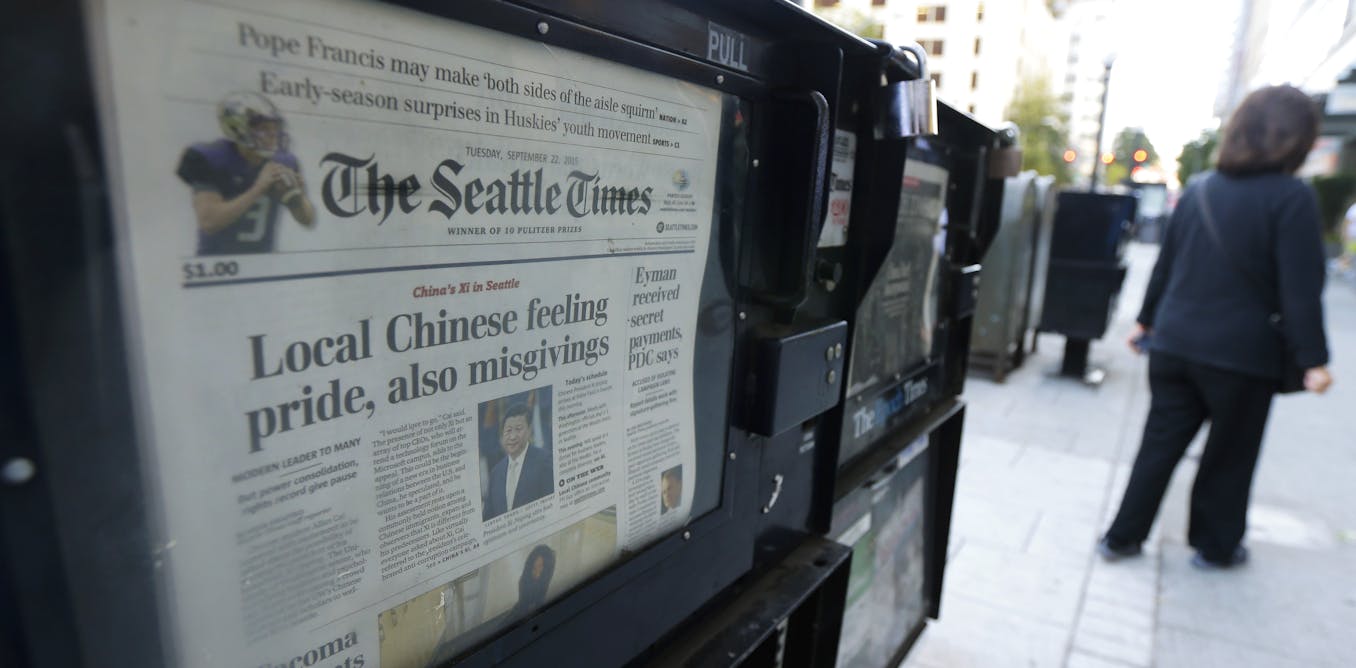Just about every four a long time, millions of People be part of billions of their fellow people throughout the world to celebrate the astonishing athletic feats at the Summer time Olympics.
Heat-weather conditions sporting activities these kinds of as swimming and keep track of that usually never capture a great deal notice in U.S. media all of a sudden vault to the forefront. Nationwide teams compete in globe championships each year, but it is only at the Olympics that informal enthusiasts root on the purple, white and blue.
Why do the Olympics capture our attention in a way that almost nothing but soccer’s Environment Cup can approximate? And why does our nationalist rooting increase to athletics that are in any other case obscure?
As a athletics scientific tests scholar with a distinctive fascination in fandom, I have located that sporting affiliations are fundamental to hundreds of thousands of people’s perception of identification. For lots of Individuals, becoming a Packers or a Lakers or a Notre Dame lover is the primary way they discover by themselves, in advance of their position, faith or ethnic heritage. They organize their life all-around the schedules of their picked groups, adorn their bodies to clearly show their assist and make a neighborhood of pals among fellow enthusiasts.
Fundamentally, I have argued, this is a system of storytelling, weaving a team’s triumphs and struggles jointly with facts from fans’ have life.
Much like a spiritual neighborhood, enthusiasts also like to see their values mirrored in the crew and its stars, cherishing athletes who demonstrate like-mindedness to individual leads to via neighborhood provider or charitable supplying.
In the two circumstances, these meaningful connections are created by way of prolonged-standing connections in between athletes and followers – imagined relationships crafted over months, several years and even decades.
AP Photograph/Rebecca Blackwell
Crew United states
Not like most team allegiances, the Olympics are not a day-to-day or seasonal pursuit. They arrive into Americans’ lives in powerful two-7 days bursts each individual couple of several years, filling viewers with ponder as they look at athletes, most of whom they really do not understand. It is a very diverse sort of athletics tale. So why do spectators feel so connected with gamers and fellow fans?
To clarify the potency of sporting activities affiliation, scholars typically cite political scientist Benedict Anderson’s strategy of “imagined communities.”
Anderson hypothesized that human beings like to really feel connected to a bigger group, even if that group becomes so large that it is mainly produced up of people we do not know personally – like an total country.
For Anderson, why anyone feels “American” has extra to do with collective creativity and a wish for community than the technical specifics of citizenship or nationwide laws. Regardless of the unbelievably extensive range of American activities – not to point out an ever more divisive political environment – Us citizens even now want to envision that we share an crucial nationwide id that Team Usa signifies on the earth phase.
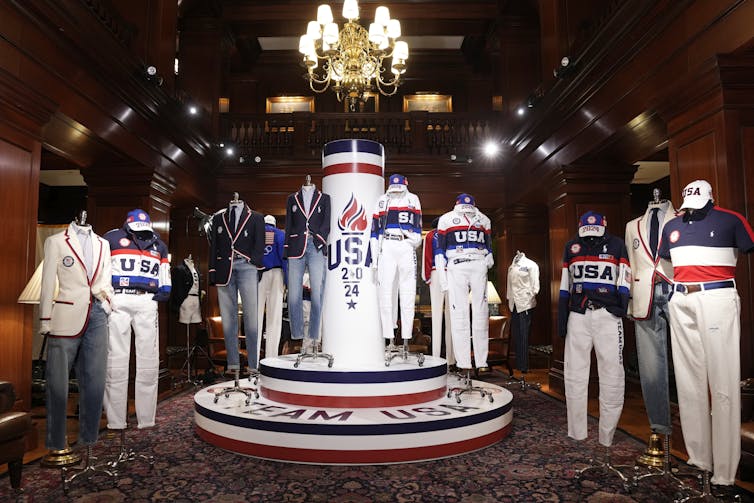
Charles Sykes/Invision/AP
By wrapping athletes in flag-themed uniforms, the Olympics capture informal watchers’ attention, in spite of most competitors’ obscurity. The opening ceremony’s parade of flags primes viewers for this practical experience, encouraging them to cheer for their country.
Patriotic key time
Nonetheless, longing for an “imagined community” is not ample to explain why viewers dedicate so considerably attention and emotion to a youthful canoeing phenomenon paddling for gold or a wrestler conquering wellbeing crises to compete.
There is a different force shaping the American Olympic experience: the media microscope of NBC Sports.
NBC has held exceptional U.S. broadcast media rights for the Summer time Online games and Wintertime Video games because 1988 and 2002, respectively, having to pay billions for the privilege of rendering the legendary Olympic rings beneath the network’s rainbow peacock logo. In 2014, NBC agreed to pay the Worldwide Olympic Committee US$7.65 billion for the legal rights to the Summer season Video games and Winter Online games from 2021 to 2032.
With that a lot cash invested, NBC is intent on maximizing American awareness to the Game titles – and buoy their own bottom line. Historically, they’ve been fairly profitable, peaking at 27 million primary-time viewers, on typical, in 2016. Throughout the delayed 2020 Tokyo Games, that number plummeted to 15.5 million, its lowest at any time for a Summer time Olympics on the other hand, electronic views and streaming rose in Tokyo and throughout the Beijing Online games in 2022.
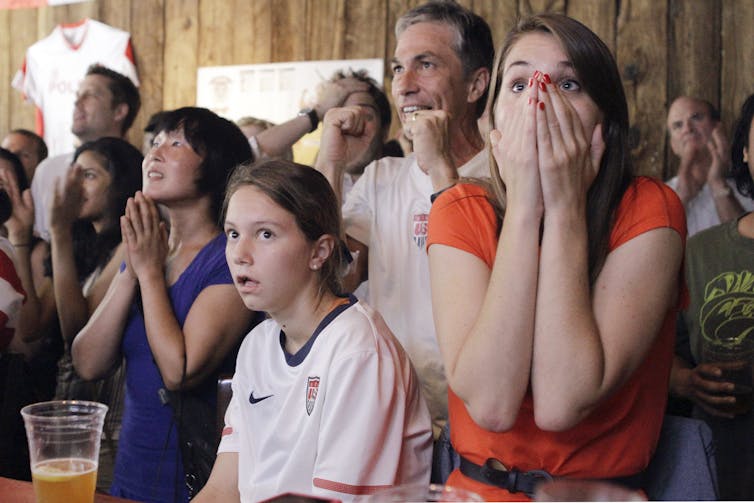
AP Image/Alex Katz
But the Olympics coverage NBC delivers is not a neutral or unfiltered see. For one particular point, the network tends to dismiss or downplay criticism of the Games’ administration, the host nation and the IOC.
And when it comes to building “imagined group,” NBC requires the craft of storytelling pretty seriously. Their coverage includes the contests on their own, with the requisite participate in-by-play announcers, informational graphics and pre- and postmatch interviews. But it also relies greatly on airing delicate-focus profiles of American athletes, with an mind-boggling emphasis on their households, conquering adversity, and other tales possible to tug at the heartstrings of the viewer.
These sportsmen and sportswomen come to be primary characters in the viewers’ comprehension of the Olympic drama – figures whose sympathetic tales are carefully crafted to stimulate fans’ expense of time, focus and emotion in pursuing them all over the Online games. {Each viewer needs to be enthusiastic to tune in: For case in point, will sprinter Sha’Carri Richardson conquer her prior heartbreak and triumph on the Olympic phase?
Feats of athleticism can amaze and astonish in neighborhood parks or playing fields, just as they can on tv. But in the end, it is the emotion of relationship to a little something bigger – to athletes and viewers across the entire world – that entices so several folks viewing the Olympics every four many years.
The imagined neighborhood that American enthusiasts experience part of when they root for Workforce Usa is no accident. The alluring dynamics of fandom, nationalism and dramatic storytelling have been thoroughly orchestrated to capture our notice, for improved or worse.

